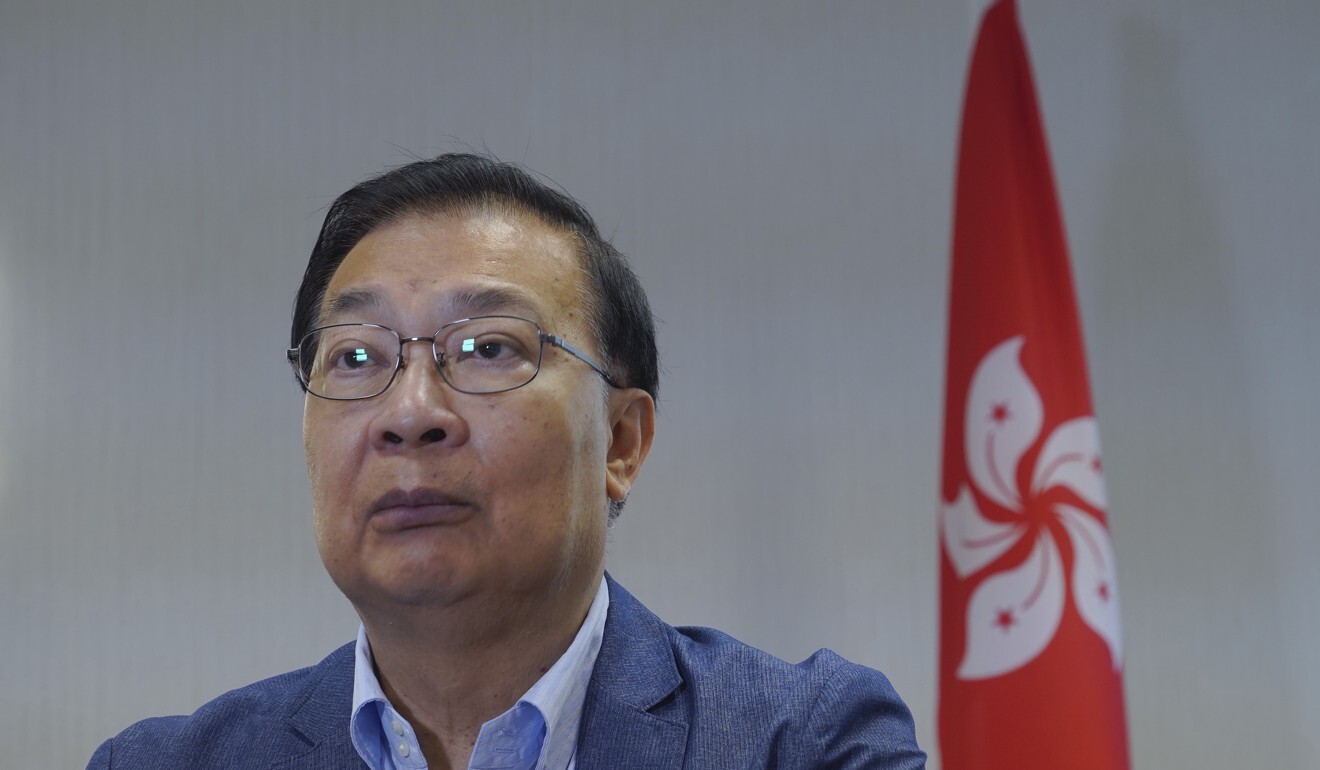
No public consultation exercise for Hong Kong proposal to allow voting in mainland China, sources say
- Proposal will go directly to Legislative Council ‘to give officials time to prepare for polls next year’
- Government expected to unveil proposals before Chief Executive Carrie Lam’s policy address
Hong Kong authorities plan to do away with public consultation and unveil proposals to expand voting for Hongkongers on mainland China before the city’s leader delivers her annual policy address, the Post has learned.

Early last year, Lam shrugged off calls for a full public consultation exercise on the bill, which would have allowed fugitives to be sent to mainland China and other jurisdictions with which Hong Kong had no exchange arrangement. Members of the public had only three weeks to send in their views.
Why hasn’t the government engaged the public? They haven’t done this because of fear of strong dissent
The delay added uncertainty to the plan to amend the electoral laws to allow Hong Kong permanent residents living in major Chinese cities to vote on the mainland, with polling stations set up at Hong Kong government offices there.
Now it appears the plan will be rolled out before Lam delivers her speech.
“The government plans not to wait till the end of November for Lam to unveil the proposals along with her delayed policy address,” a policy bureau insider said. “We don’t have much time left. We don’t know what will happen [in the Legislative Council] if people try all kinds of tactics to block the bill.”
Opposition lawmakers have vowed to use all means to block the passage of the bill, which they consider an unfair move to increase pro-government votes.
The source said a formal public consultation exercise would be skipped in the hope of having the amendment bill passed in the legislature by early next year.

05:25
Hong Kong's competitive edge questioned as Xi says Shenzhen is engine of China’s Greater Bay Area
That would give election authorities sufficient time to prepare for the first polling arrangements outside Hong Kong, in the postponed Legco elections scheduled for September 5, 2021.
“Public consultation is not the only way to engage citizens in policymaking. We’ve been gauging views through different channels,” the source said.
Hong Kong lawmaker suggests opposition’s stalling could violate security law
The independent elections watchdog said the government should “facilitate a thorough discussion in society” before putting the proposed changes before Legco.
It declined to comment on whether it was aware that the government intended skipping a public consultation exercise, but referred the Post to its report, released earlier this month.
The report did not indicate the commission’s position, but urged the government to “carefully consider the applicability and enforcement of the subsisting electoral law in places outside Hong Kong” so that the issue of law enforcement abroad could be addressed.
To Chinese University political science professor Ma Ngok, the report implied the watchdog could not think of a proper way to deal with potential issues under the current legal framework.
He urged officials to learn from the mistakes of last year’s political turmoil, warning distrust of the government would deepen if they did not engage the public again.
“It will seem that the government won’t back down on the bill regardless of how unreasonable it is and how many legal obstacles lie ahead,” he said.
“[The amendments] will be viewed as electoral manipulation by residents and western societies alike, further undermining trust and the credibility of the government.”
Public consultation used to be an important part of the Hong Kong policymaking process under the British and during the early years after the city was returned to China in 1997.
Another government insider involved in the plan said postal ballots had been ruled out to avoid voting fraud, and officials had tried to identify premises other than Hong Kong government offices to use as polling stations in the bay area.
Hong Kong’s exiled dissidents: world’s listening, but for how long?
According to census statistics, 541,900 Hong Kong residents were living in Guangdong province as of the middle of last year.
Tam Yiu-chung, a pro-establishment heavyweight who has campaigned for voting arrangements immediately across the border, hoped the number of polling stations could be increased with the help of mainland authorities.
“Government offices might not be the only options to serve as polling stations considering their limited number and space. They should explore the option of renting hotels and other private premises,” said Tam, former chairman of the Democratic Alliance for the Betterment and Progress of Hong Kong.
“It should not be complicated with the support of the mainland government.”
Opposition lawmaker Lam Cheuk-ting of the Democratic Party slammed the possibility the government could press ahead without a public consultation exercise.
“The amendment of the election laws will significantly twist the electoral system,” he said. “Why hasn’t the government engaged the public? They haven’t done this because of fear of strong dissent.”

